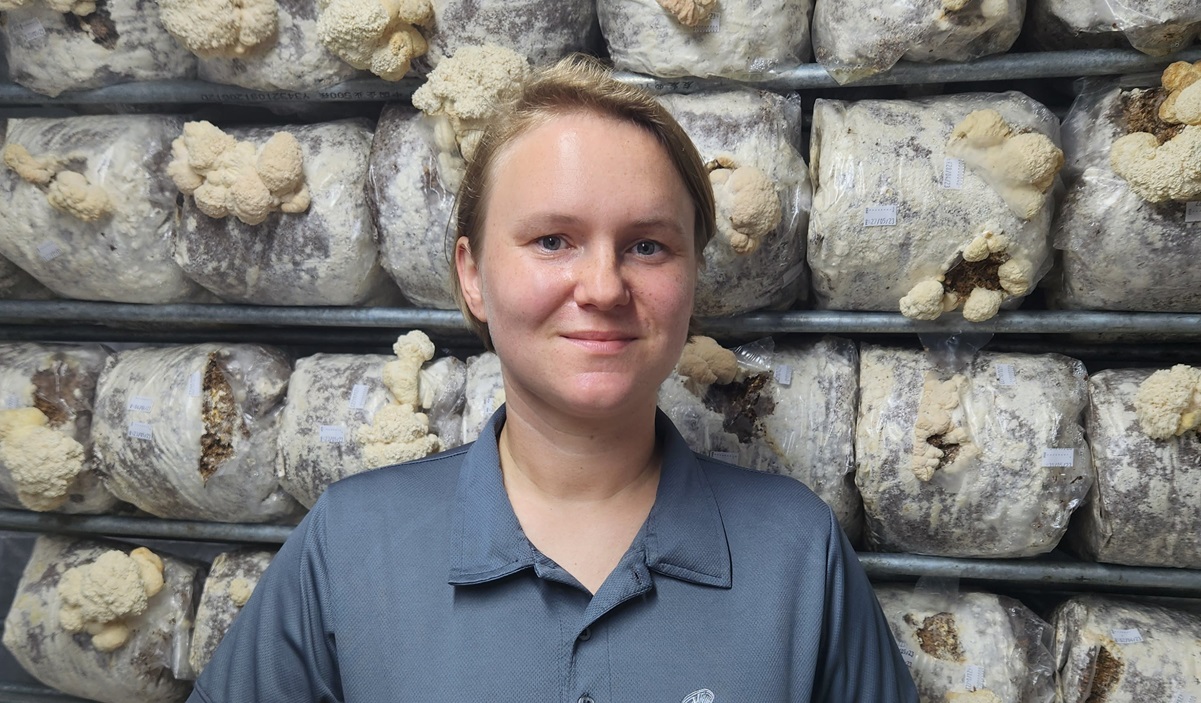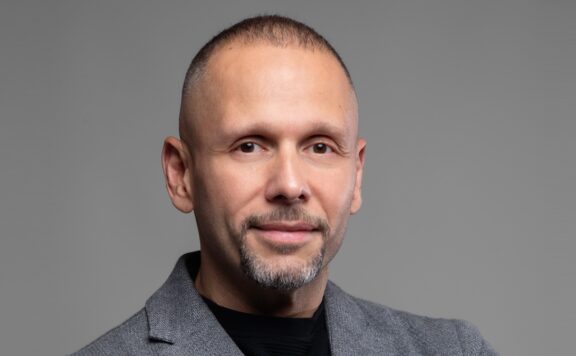Liliana Slowinska, Co-Founder and Business Development Director of Below Farm, found a gap in the UAE market and went on to plug the gap with mushrooms, leading them to become the #1 mushroom brand in the Middle East
What inspired you to start an indoor mushroom farming business?
We saw a need in the market, and it was a space no one was operating in. We embarked on a journey to locally produce high-quality mushrooms, mushroom food items, and mushroom wellness products that continue to delight our customers. Since its launch, Below Farm has continued to grow and today is the #1 mushroom brand in the Middle East.
How did you manage to raise funding for your venture?
We are a fully bootstrapped venture, built with founders’ capital, generating revenue. This year, we have started looking for strategic partners to help us reach the next level and beyond. We have ambitious plans, and we are looking for like-minded investment partner.
Can you provide an overview of your indoor farming setup and the techniques you use to cultivate mushrooms?
We have a mycelium lab, which is the 1st of its kind in the region. We have a substrate facility, mushroom fruiting chambers, packing and processing areas, storage areas and large chillers. What makes us unique is that we grow from seed to fruit, or in mushroom language, from spores to mushroom, using circular techniques and local materials. We work with specifically selected seeds that thrive in warmer climates, which we then train to thrive on a diet of locally available materials such as composted date palm leaves. With each generation, mushrooms grow stronger and have a larger yield.
What types of mushrooms do you specialize in growing, and are there any specific varieties that you find particularly interesting or challenging?
We focus on specialty functional mushroom varieties such us shiitake, maitake, king oyster, oyster, lion’s mane mushrooms, chestnut (cinnamon cap), reishi, and cordyceps. More soon! Below Farm was the region’s first-ever farm to grow lion’s mane mushrooms, which we are incredibly proud of. We all need more diverse diets to ensure resiliency in the face of climate change, and our mushroom varieties play a big part in driving that biodiversity.
How do you ensure the quality and consistency of your mushroom harvests year-round in an indoor environment?
At Below Farm, we are fungi experts augmented by machines and technology that help us control the incubation and fruiting chambers’ environments. We keep a detailed track of all our harvests and regularly brainstorm how to improve techniques. We get amazing feedback about the quality of our mushrooms, so our hard work and dedication are paying off!
What are the key advantages of indoor mushroom farming compared to traditional outdoor methods?
You will find that mushrooms are predominantly cultivated indoors, regardless of geography. Mushrooms that are wild harvested from the forest are rare and seasonal. Indoor mushroom farming has the benefit of year-round consistent growing and purity. The wild-grown mushroom may contain other elements from the environment and foraging, which can be dangerous.
What are the main challenges you face in running an indoor mushroom farm, and how do you overcome them?
Contamination is a top-of-mind concern for any mushroom farm. Additionally, we built our business on circularity principles, which means we need to find local materials for our mushrooms to thrive. We need lots of them as we grow the business!
How do you manage factors like humidity, temperature, and lighting to create optimal growing conditions for mushrooms indoors?
Mushrooms are a fiddly bunch. Each variety has its own set of humidity, temperature, and gas exchange requirements, and I often jokingly say that’s why they don’t make great roommates with one another. This necessitates keeping them in separate fruiting chambers with unique conditions they need to thrive.
Are there any specific certifications or standards your mushrooms adhere to, such as organic or non-GMO?
Yes, we are very particular about certifications and high standards for our mushrooms. We are a HACCP and AD GAP-certified farm, regulated and frequently inspected by ADAFSA. We are also Ma’an Social Enterprise-certified entity for the positive impact we create in the UAE ecosystem. We are looking to have our mushrooms organic certified soon.
What markets do you target with your mushroom products, and how do you reach customers?
We are in the UAE, but our sights are set on Saudi Arabia and other GCC markets. We have been approaching customers directly or through warm introductions and have had great traction.
Can you discuss any partnerships or collaborations you’ve formed within the food industry or local community?
In 2023 Below Farm have been named Top Innovator by the World Economic Forum, and we have an ongoing relationship with their impact team in Switzerland. Closer to home, in the UAE, we have a partnership with Expo City Dubai where our mushroom grow cabinet for the public. We have presented to MOCCAE on several occasions and are a part of their Circular Economy Landscape Report. We support local universities through research collaborations. We are a regular sight at the farmers’ markets and have a permanent display at Arbor School in Dubai.
How do you handle distribution and ensure that your mushrooms reach customers in the freshest possible condition?
We deliver farm-to-fork in less than 2 hours. You can’t beat that! We deliver directly to our retail customers and to hotels and restaurants via our HORECA distributor. We also have a thriving direct-to-consumer online store with a full range of our products.
What is your pricing strategy for your mushroom products, and how do you stay competitive in the market?
We regularly benchmark our products for price competitiveness. And, to stay ahead of the competition, we ensure that all our products’ freshness, flavour, beauty, and quality surpass anything that are available in the market.
Do you have plans to expand your product line or scale up production in the future?
Yes, we have ambitious plans to enhance our product line and increase our production to meet the growing demand for our product.
What role do you see indoor mushroom farming playing in the future of sustainable agriculture and food production?
Below Farm addresses human and environmental health by unlocking the benefits of functional mushrooms. There is no doubt mushrooms and mushroom derivatives will play an important role in how the content of our plates will change in the years to come. People can lead healthier and happier lives without agriculture and existing food production systems extracting from the Earth and harming our health. Mushrooms are humanity’s allies. Below Farm’s vision is to provide access to the vast range of Nutra-therapeutic benefits the fungi kingdom has to offer.





